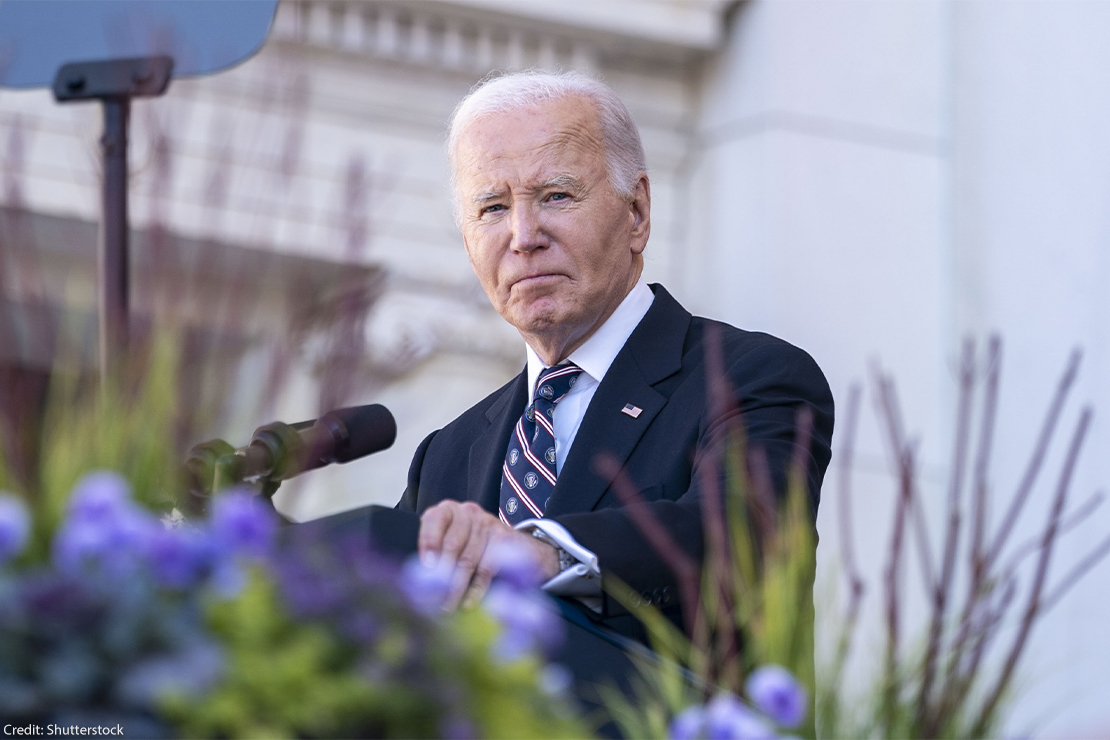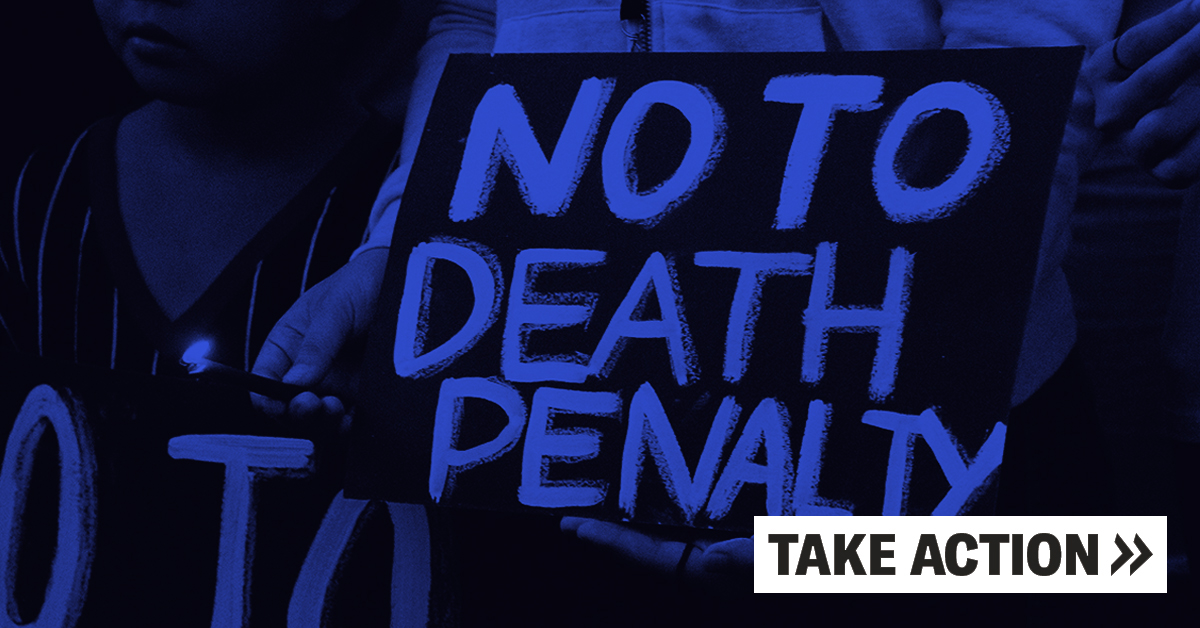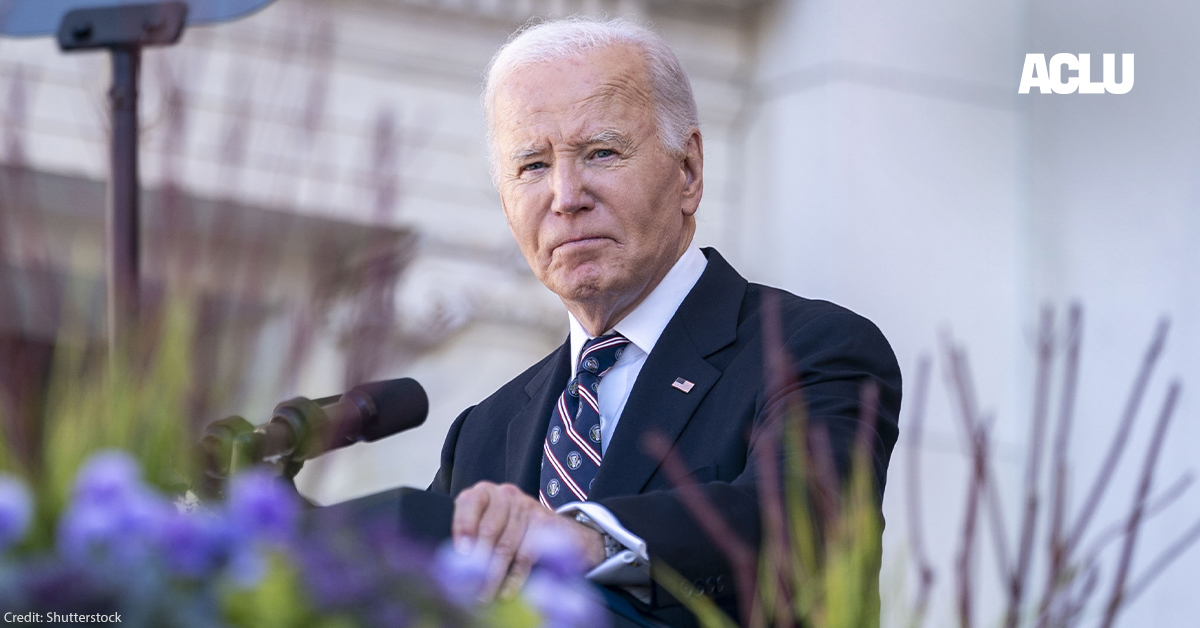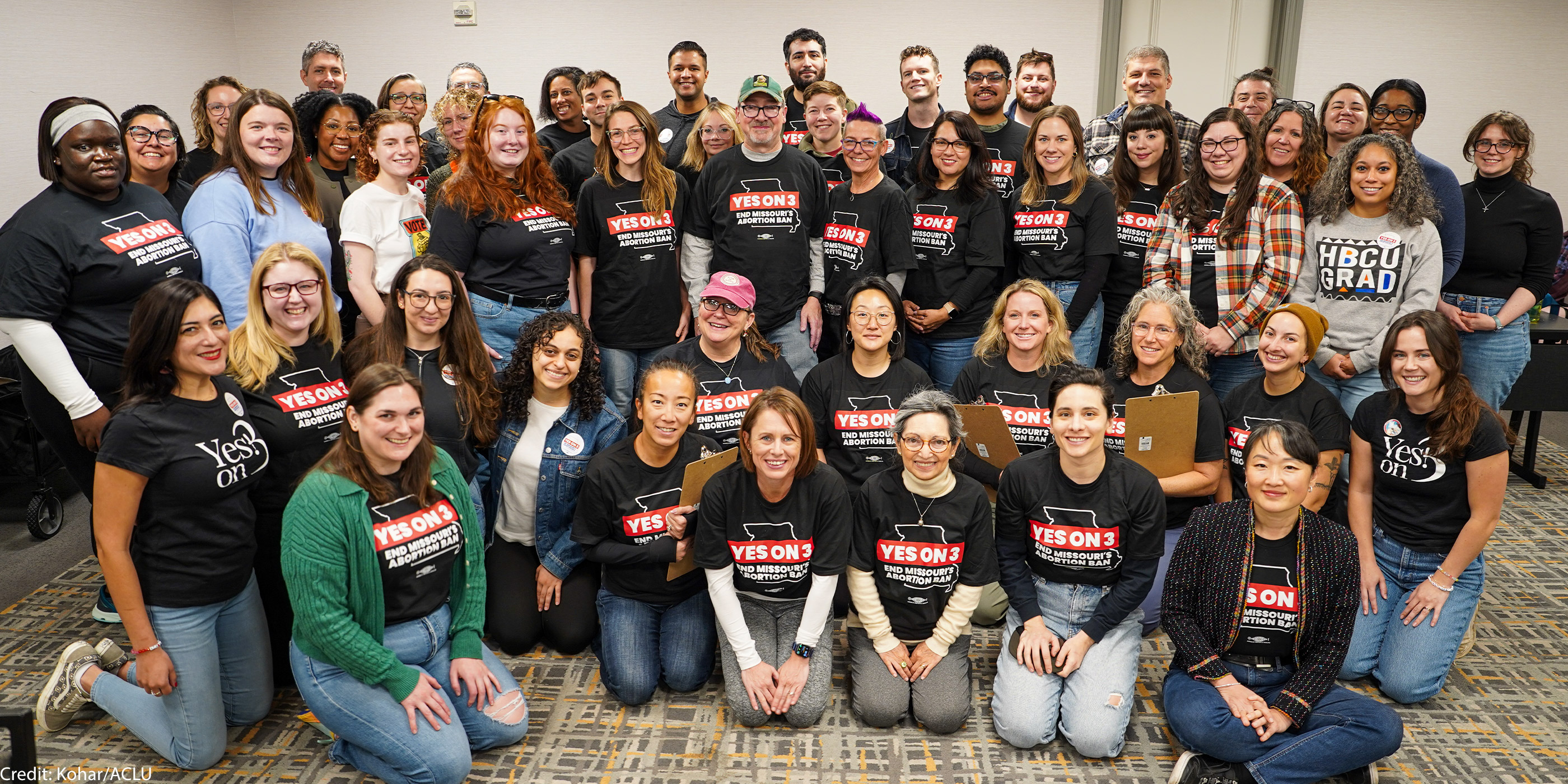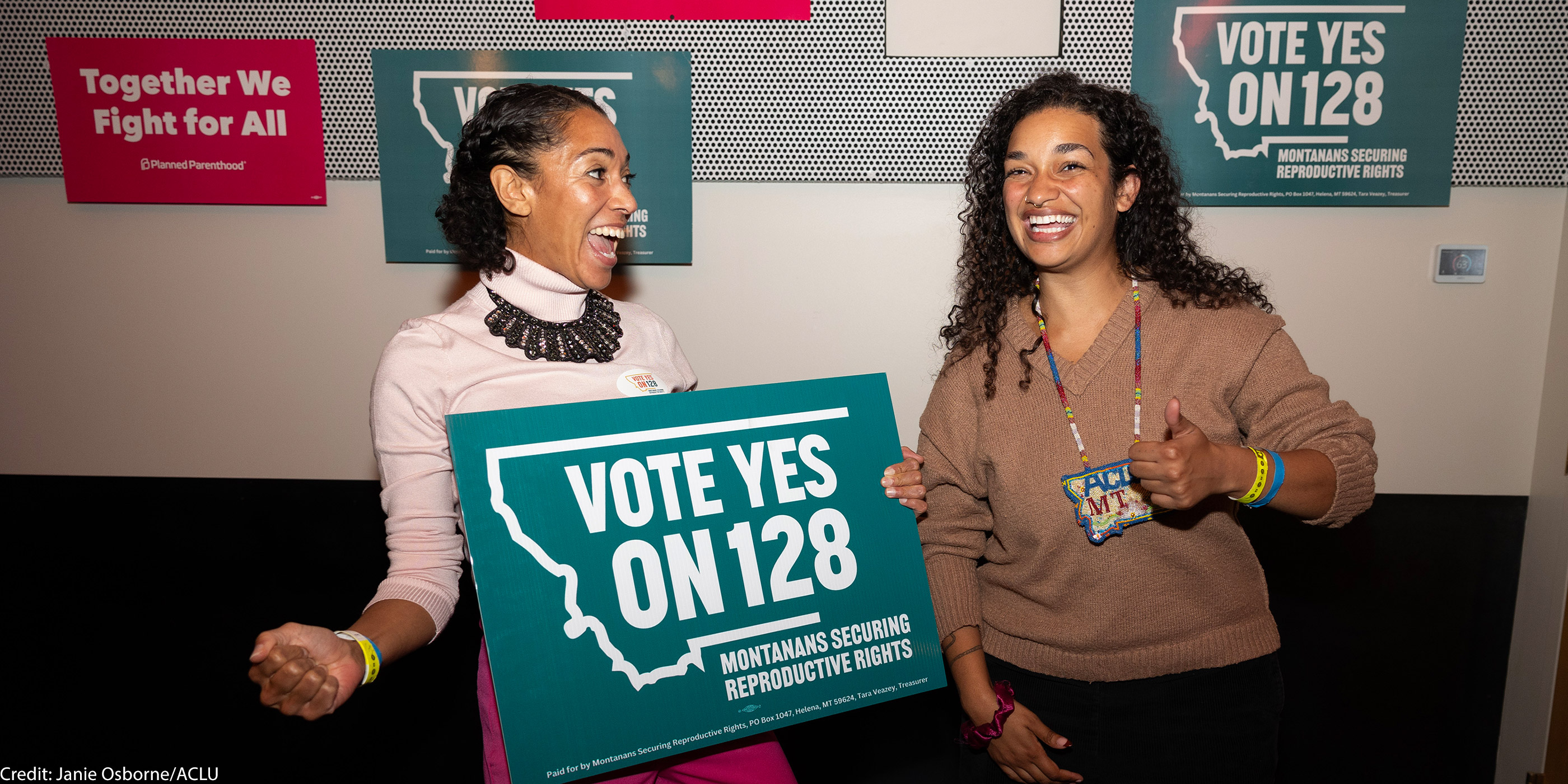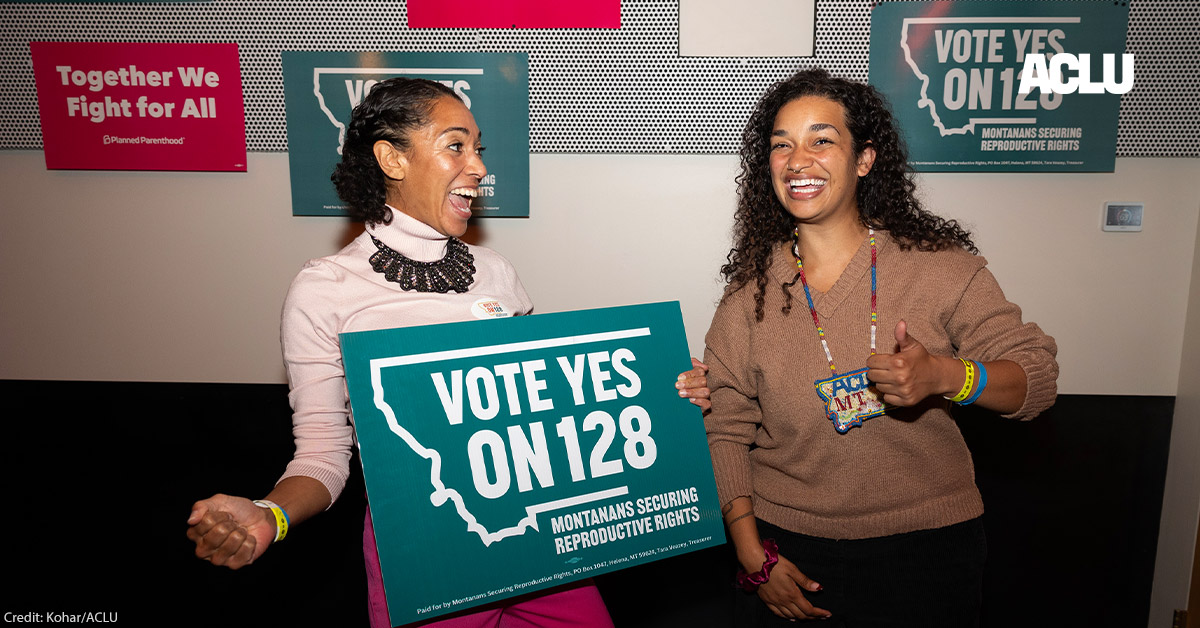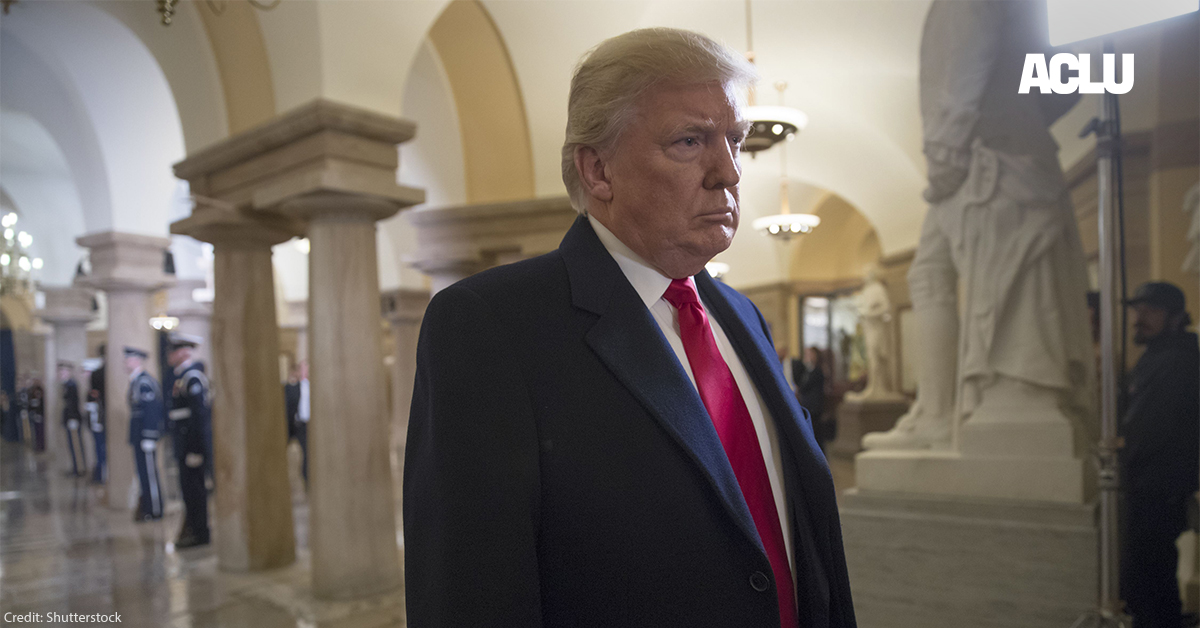President-elect Donald Trump has chilling plans to use his second term to expand the federal death penalty. This expansion continues the killing spree he initiated in the final six months of his first presidency when Trump oversaw more executions than any president in the past 120 years. His plans for a second term include sentencing more people to die, expanding the category of crimes punishable by death, and killing all 40 people currently on federal death row.
President Joe Biden can — and must — act now to finish the death penalty reform work his administration began in 2020. He must commute the sentences of all people on federal death row to stymie Trump’s plans and to redress the racial injustice inherent to capital punishment.
The Facts
The ACLU has long fought for an end to the death penalty. We know that its cruel practices are out of step with the fundamental values of our democratic system. Trump’s return to the White House, and his unprecedented, extreme, and inhumane stance on capital punishment, only threaten to make an already cruel system more dangerous.
Already, Trump has called to unconstitutionally expand the death penalty to include non-homicide crimes, such as drug-related offenses. He has also reportedly called for the death penalty as punishment for those who leak information against him in the press or undermine him politically. He has suggested bringing back firing squads, the guillotine, and hangings by noose – a symbol and tool of our country’s sordid legacy of lynching and racial terror.
Trump’s promise to expand the death penalty magnifies the systemic inequities that already plague our capital punishment system. The federal death penalty, like state capital punishment systems, is error prone, racially-biased, and a drain on public resources. More than half of those under federal death sentence in 2024 are people of color, some of whom were convicted by all-white juries. People with serious mental illnesses, intellectual disabilities, brain damage, and histories of trauma are also overrepresented on death rows across the country, including the federal row. Additionally, as long as the death penalty exists, we risk executing innocent people, as evidenced by the 200 people who have been sentenced to death and exonerated since 1973.
In 2020, Biden made history as the first president to openly oppose the death penalty. Under his leadership, the Department of Justice (DOJ) acknowledged the death penalty’s disparate impact on people of color as well as the staggering number of people who have been sentenced to death and, subsequently, exonerated over the past five decades. Though Biden stopped short of acting on his promise to secure an end to capital punishment, he can still save lives and help build a legacy rooted in racial justice by commuting all federal death sentences to life in prison.
Why It Matters
Studies show that the death penalty does not keep our communities safer. In fact, research has consistently shown that the death penalty does not deter homicides and that in states that homicides are lower in states that do not have the death penalty.
Trump has consistently ignored these facts. Instead, during his last term, he went on a killing spree and rapidly executed 13 men in quick succession without regard for serious miscarriages of justice. Of the 13 people Trump executed in his last term, two were Black men sentenced as teenagers, one was a woman with mental illness who had survived a lifetime of horrific sexual abuse and torture, another was a man with intellectual disabilities, and there was also a 67-year-old man whose Alzheimer’s disease left him unaware of the reason he was sentenced to die. A majority of the 13 executed were people of color, including seven Black men and one Native American man.
These executions, particularly of people with mental illness and intellectual disability, demonstrate that no amount of procedure eliminates the fundamental flaws of the death penalty.
Our Roadmap
The ACLU is calling on President Biden to commute the sentences of all people on federal death row before he leaves office. Commuting federal death sentences will redress the legacy of racial bias inherent to capital punishment and make Trump’s brutal plans for another killing spree impossible. If Biden does this he’ll not only take away Trump’s power to oversee another execution, but he’ll also help set the U.S. on a different course. By setting an example of empathy and a willingness to root out injustice, he can pave the way for future administrations to build on his legacy and finally end capital punishment.
Our work is not confined to federal commutation efforts. The Eighth Amendment forbids cruel and usual punishment, including Trump’s proposals to expand the application of the death penalty to non-homicide crimes like drug trafficking and to use methods like hanging or the guillotine. The ACLUis ready on day one to challenge inhumane death penalty expansion efforts and any attempts to return to regressive killing methods.
At the state-level, the ACLU will build on our ongoing work against the death penalty. We’ll continue our litigation in states like Kansas and North Carolina under laws that are more protective than the U.S. Constitution — like state racial justice acts and constitutions — to invalidate the death penalty based on its racist administration, including in the selection of jury members.
What Our Experts Say
“The death penalty is a morally-bankrupt and inescapably racist institution. President Biden came into office committing to abolishing the federal death penalty because of its fundamental flaws. Commuting the federal row is the way he can honor that commitment, and prevent irreversible miscarriages of justice.” — Yasmin Cader, ACLU deputy legal director and the director of the Trone Center for Justice and Equality.”
What You Can Do Today
President Biden can commute all federal death sentences before his time as president ends, saving lives, preventing an irreversible miscarriage of justice, and building a legacy rooted in racial justice and compassion. Urge him to do so today.
Date
Thursday, November 14, 2024 - 12:15pmFeatured image
